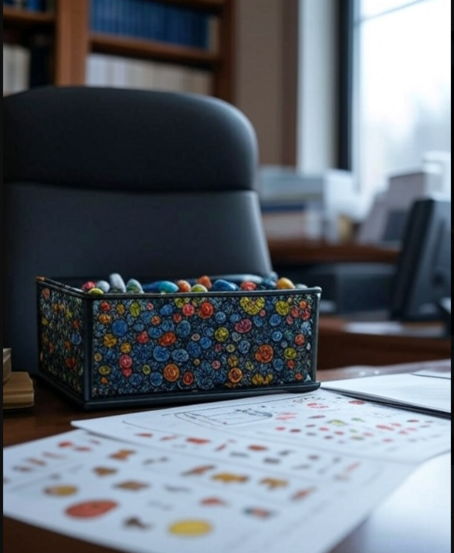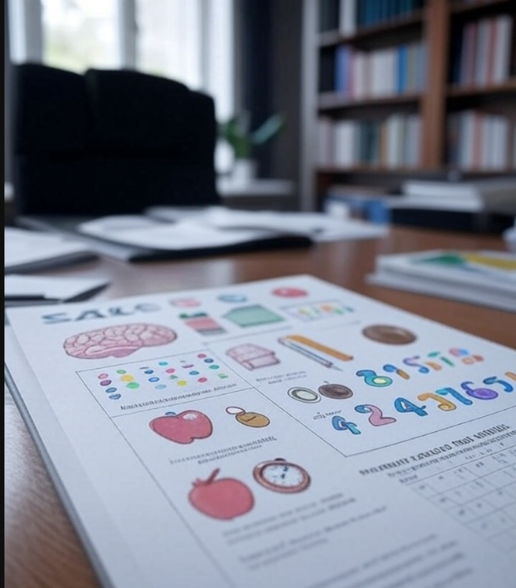
A Memory Loss Test for Identifying Alzheimer’s and Dementia Symptoms
Table of Contents
Brain health is not something to be taken for granted. Just like the heart or bones, the brain changes with age. Those changes can affect memory, reasoning, and our way of interacting with the world. Some forgetfulness is normal, but excessive symptoms may signal early cognitive decline.
Alzheimer’s and dementia are two of the most serious illnesses of aging. It’s not just a matter of forgetting. They involve the gradual breakdown of brain cells and neural networks, so names take more and more effort to recall, decision-making slows down, and conversations become harder to follow. It echoes through the course of daily life and relationships.
Recognizing the early signs matters. The earlier an individual takes a memory loss test, the sooner they can seek proper medical advice. Whether you’re a concerned family member, a caregiver, or someone noticing changes in yourself, being informed could make all the difference.
One effective tool is the SAGE test, developed by the Ohio State University Wexner Medical Center. It helps screen for memory and thinking problems in a simple, science-backed way. Understanding how it works can offer peace of mind and serve as an early warning.
What Is the SAGE Memory Test?

The Self-Administered Gerocognitive Examination, or SAGE, is a short written test that may detect early brain changes affecting memory and thinking. It may be taken at home, in a clinic, or at a doctor’s office. It does not give a diagnosis but may suggest whether medical evaluation is required.
It was created to give individuals a straightforward initial step toward comprehension. This test is used by those who want to monitor their brain health over the long term.
How Does the SAGE Test Work?
The SAGE memory loss test is administered in only 10 to 15 minutes. It has activities such as drawing shapes, recognizing objects, solving simple arithmetic, and remembering. Every segment is focused on checking certain areas of brain function, especially those that get impaired in the early phases of cognitive impairment.
Since it’s self-administered, one can take it in the comfort of their home. Afterwards, a healthcare practitioner should read over the results to accurately interpret the score and recommend what to do next.
What Does the SAGE Test Measure?
This examination assesses several areas of cognition. These are memory, language skills, executive function (planning or organization), visual-spatial skills, and problem-solving. Thus, it indicates how different parts of the brain are cooperating, or where they are failing.
The SAGE is not a substitute for a full neurological assessment, but it is a useful tool for recognizing patterns that need extra attention. It’s typically used as the starting point for discussion between patients and doctors, most notably in seeking out ways to improve memory loss through medical or lifestyle intervention.
Who Should Take a Memory Loss Test?
A memory assessment like SAGE is recommended for adults over the age of 60, especially if a recent change in behavior or forgetfulness episodes were noticed. Children of aged parents can also benefit by encouraging regular screening, especially with a history of dementia in the family.
Even symptom-free individuals can gain from taking the test periodically. Awareness at an early stage is one of the best methods to avoid dementia. Coupled with expert guidance and brain-friendly living, screening tests such as SAGE are vital for maintaining mind sharpness.
Early Warning Signs of Cognitive Decline
Not all forgetting is an indicator of something going wrong. Everybody misplaces keys or forgets names. However, when these lapses become more frequent or disrupt daily functioning, they may indicate something. Distinguishing between random memory lapses and potential cognitive decline is important.
Mild issues, like not being able to concentrate after poor sleep or a deficiency of vitamin B12, typically heal with rest, diet, or changes in lifestyle. When an individual starts forgetting well-practiced paths, repeating the same ideas, or having changes in judgment or personality, the time has come to act. This is when a check-up on memory is not just beneficial—it is necessary.
According to the Mayo Clinic, early diagnosis of cognitive decline greatly improves the effectiveness of treatment and lifestyle measures. Early evaluation could avoid dementia or delay it through adequate observation and treatment.
Home or Neurologist Testing for Memory Loss
Many would like to learn how to test memory loss accurately. There are two principal ways: at home or with a physician.
The SAGE test is a reliable starting point for at-home screening. It gives information on several cognitive processes, without the expense of a clinical setting. A return visit to a neurologist is, nonetheless, necessary for accuracy. In a medical evaluation, the doctor would employ more instruments like the Mini-Mental State Examination (MMSE), blood work, and brain images.
This holistic process results in personalized treatment strategies and ways to improve memory loss depending on medical and lifestyle conditions.
Dr. Gary Small, one of the top experts on aging and memory, emphasizes the advantage of being proactive:
“Most of us have much more control than we realize when it comes to memory retention and brain health.”
What Happens After the Test?
The outcome of the test determines what happens next. If concerning symptoms are found, the doctor may refer the individual for further neuropsychological evaluation. These results are utilized to create a care plan that may include medication, cognitive therapy, or memory care support programs.
For patients with mild issues, doctors prefer to recommend early interventions. These can include dietary modifications and brain stimulation exercises.
Most importantly, patients and families are urged to develop daily routines that help the brain remember better, like keeping a calendar, staying socially connected, or doing memory-training exercises. These habits have been proven to promote function and confidence.
Conclusion
Taking charge of brain health is a good decision. Whether you are facing early warning signs or supporting someone, taking action early can bring clarity and peace.
Brief screening tools like SAGE offer a first step toward concern detection. With the advice of a physician and daily lifestyle changes, they help individuals remember better and keep their cognitive well-being intact.